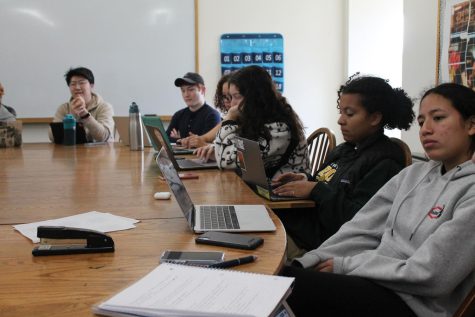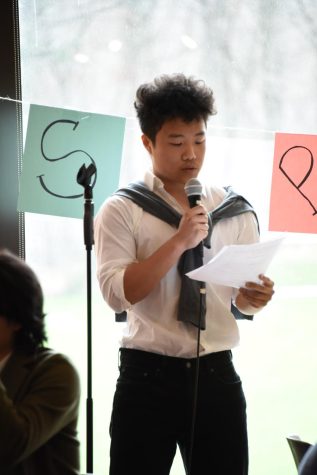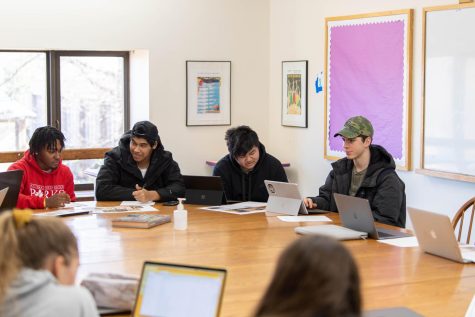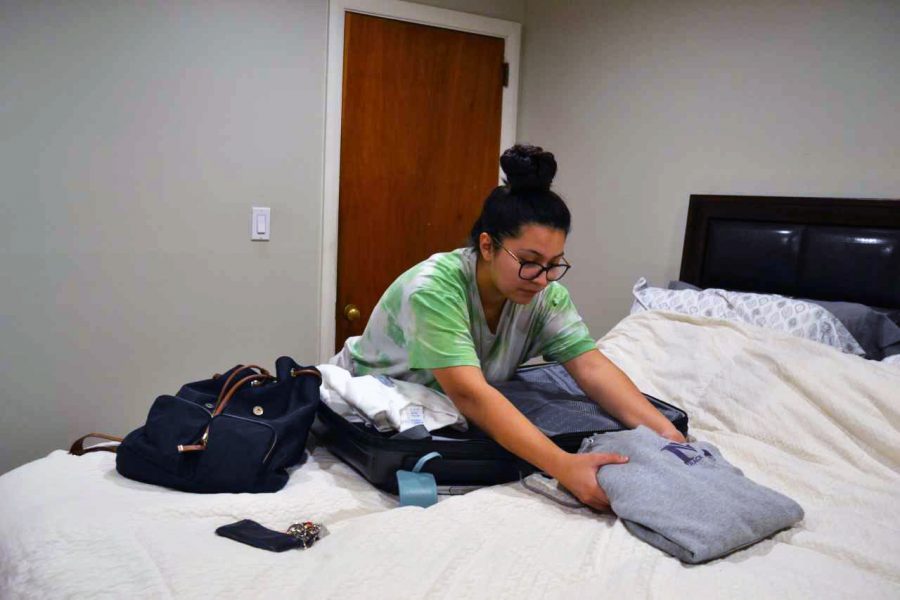Boarders prepare for long-awaited campus re-entry
Senior Ariella Uribe packs her clothes and personal belongings to prepare to their return to campus this Saturday.
This Saturday, Feb. 6, the dorms on campus will re-open to the boarding community after being closed for nearly a year.
The boarders returning to campus will range from grades 9-12, a shift from the administration’s initial decision to limit the first wave of returning boarders to only seniors. The reopening of the dorms was originally scheduled to follow winter break, but surging COVID-19 cases in Westchester County and the surrounding New York region forced that time frame to be shifted to the current date.
The 33 boarders who are returning will have new protocols to follow. Prior to returning to the dorms, each student must complete all required medical forms, find an emergency contact within six hours of campus willing to provide accommodation in case of a campus closure due to COVID-19, and show a negative test result.
In accordance with New York State guidelines, all students will have to quarantine for seven days upon arriving in the dorms and mask-wearing will be required at all times in the dorms unless the student is in a room by themselves or in the shower. Only the girls’ dorms, with single occupancy rooms, will be opened. Cole Dorm will house boys and Ford Dorm will house girls. McCormack Dorm may be used after spring break, depending upon the final numbers of the boarders who elect to return.
Senior Hank Mattison – one of the 33 students arriving this Saturday – expressed his excitement to return back to a more normal boarding situation. “Before quarantine, I used to just set up my Nintendo Switch in the common room and people would just come and play with me,” he said. “I really missed the social circles that I had back in the boys dorms, and I’m hopeful that will return in time for me to make more meaningful connections.”
Senior Alex Wang said he is still not planning on coming back to campus before spring break because of safety concerns. Additionally, the number of tasks and health protocols required to complete to be allowed back on campus was too tedious, including the quarantining and nearby guardian requirement.
Wang also noted that he would face various difficulties if he sought to travel back home to Shanghai from New York, because according to him, currently the regulations in China are so strict that if someone would want to go back, they would have to take five Covid tests and wait almost a month in quarantine before being cleared.
Senior Caio Lanes is in a similar situation. Traveling from Brazil, Lanes had already been back to New York since March**, coming back as a day student last semester after going back home when Masters originally went remote last spring. Lanes had to first fly to Mexico and quarantine for 14 days before traveling to New York to quarantine for an additional 14 days due to the travel ban the United States has imposed on Brazil.
Despite the difficulties of coming back to Dobbs Ferry, both Lanes and Wang are excited for the dorms to reopen.
“It seems the reopening plan is really elaborate and well thought-out, and it’s good to see them make actions to help the boarding community, because they are an essential part of Masters; Masters was founded as a boarding community,” Lanes said.
Wang echoed Lanes’ sentiments. “I think that it really shows that our school cares for the boarding community,” he said.
While Jakes agreed, he also mentioned concerns over the long periods of isolation that the boarders are going to face. “In terms of the environment of the boarding community it’s definitely going to hinder us and hold us back temporarily,” Jakes said of the restrictions.
Dean of Students Jeff Carnevale is excited to see boarding students back on campus.
“This is my 17th year on campus and I’ve been part of the residential community the entire time I’ve been here. To me the boarders are the heart and soul of campus,” Carnevale said. “They are what campus revolves around, whether it’s in the evenings or on the weekends. They bring so much to the life of the school, and that that has felt like it’s been missing.”
Carnevale acknowledged that Covid has made it difficult to maintain a sense of community, especially between boarders and day students, who are divided right now depending on if they are in person or remote. He added that the restrictions present another layer of challenge, but are worth it if people are together.
“They’re so connected and want to be on campus If they’re willing to embrace those sacrifices to be here, I think that’s something we all need to honor,” Carnevale said.
Dena Torino, director of residential life, is enthusiastically anticipating the students’ return.
“I love living on campus alongside other faculty members, but I miss the students. As educators, that’s why we’ve chosen to be at a boarding school, so we’ll be so happy to have them back,” Torino said.
“The boarding experience is rooted in gathering and being in-person. We’re approaching a year without students living on campus. We’ve missed everybody. Despite all of the restrictions, I think we’ll all be so happy to be here and be able to connect and be together.”
Overall, boarders and faculty members alike recognize the importance and need for these stricter regulations on campus. “[The regulations] will keep us healthy, they are there to make sure we are okay, and truthfully, at the end of the day, I would rather be on campus with these restrictions than continue online at my house,” Senior Kristie Sears said. She added, “I signed up to Masters to be a boarder that is why I came to this school, so if I get the opportunity to come back I will take it.”









